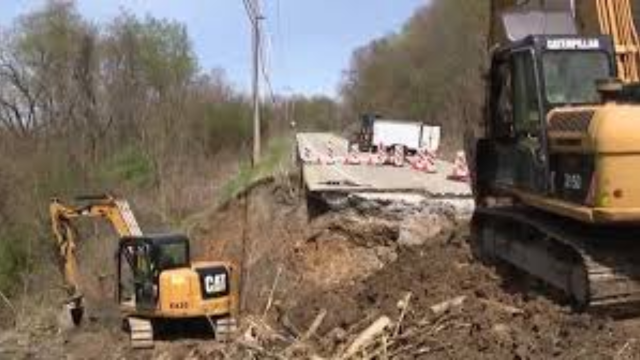In Wyoming, like many other states, laws regulate the employment of minors to ensure their safety, well-being, and education. The state’s labor laws are designed to balance work opportunities for young individuals while preventing exploitation and interference with schooling. Understanding Wyoming’s legal working age, work permit requirements, job restrictions, and compliance measures is crucial for both employers and young workers.
Minimum Age to Work in Wyoming
The minimum legal age for employment in Wyoming is 14 years old, with some exceptions for younger children in specific occupations such as agriculture, entertainment, and family-run businesses. Federal child labor laws, governed by the Fair Labor Standards Act (FLSA), also play a role in determining the employment of minors. Wyoming’s laws generally align with federal regulations but may include additional restrictions for certain jobs and industries.
Who Needs a Work Permit in Wyoming?
Wyoming does not require work permits for minors. Unlike some states that mandate official documentation before allowing youth employment, Wyoming places the responsibility on employers to verify a minor’s age and ensure compliance with labor laws. However, employers hiring individuals under 16 years old must adhere to federal regulations regarding hours and permitted occupations.
Job Restrictions for Minors in Wyoming
The type of work minors can perform in Wyoming varies based on age. Certain jobs are deemed too hazardous for young workers, and additional limitations apply to their working hours.
Jobs Restricted for Minors Under 14
Minors under the age of 14 are generally prohibited from working, except in limited cases such as:
- Performing domestic work in private homes
- Working in a family-owned business (non-hazardous duties only)
- Babysitting
- Agricultural work on a family farm
- Acting or performing in the entertainment industry
Jobs Restricted for Minors Aged 14-15
Minors aged 14 and 15 can work in non-hazardous occupations but are prohibited from working in jobs that involve:
- Operating machinery or power tools
- Working in mining, logging, or sawmills
- Manufacturing or processing work
- Construction or repair jobs
- Operating motor vehicles
- Serving alcohol (even in restaurants or retail settings)
Jobs Restricted for Minors Aged 16-17
At 16 and 17 years old, minors can work in a broader range of jobs but are still restricted from hazardous occupations, including:
- Operating heavy machinery or forklifts
- Working with explosives or radioactive materials
- Roofing and demolition work
- Meatpacking or slaughterhouse jobs
- Logging and sawmill work
- Jobs involving exposure to harmful chemicals
Once an individual turns 18, they are considered an adult for employment purposes and can work in any occupation without restrictions.
Working Hours for Minors in Wyoming
The number of hours a minor can work depends on their age and whether school is in session.
For Minors Aged 14-15:
- When school is in session:
- Work is limited to 3 hours per day and 18 hours per week
- Work must take place between 7:00 AM and 7:00 PM
- No work is allowed during school hours
- When school is not in session (summer and holidays):
- Work is limited to 8 hours per day and 40 hours per week
- Allowed working hours extend from 7:00 AM to 9:00 PM (June 1 – Labor Day)
For Minors Aged 16-17:
- Wyoming has no state-specific hour restrictions for 16- and 17-year-olds, but federal law prohibits hazardous work and limits their work schedules to prevent interference with education.
- Unlike younger teens, 16- and 17-year-olds can work unlimited hours unless federal restrictions apply in certain industries.
Compliance and Employer Responsibilities
Employers hiring minors in Wyoming must follow state and federal regulations to ensure compliance. Here are some key responsibilities:
1. Verifying Age
Employers should obtain proof of age (such as a birth certificate or government-issued ID) to confirm that the minor is legally eligible to work.
2. Adhering to Job Restrictions
Employers must ensure that minors are not assigned to hazardous jobs and that work duties comply with age-based regulations.
3. Following Hour Limitations
For minors under 16, employers must strictly follow the hour restrictions, ensuring that work does not interfere with school obligations.
4. Maintaining Proper Records
While Wyoming does not require work permits, businesses should maintain employment records, including the minor’s age verification, job duties, and work schedules, in case of labor law inspections.
5. Ensuring a Safe Work Environment
Employers must provide adequate training and supervision, ensuring that young workers are safe and free from hazardous conditions.
Penalties for Non-Compliance
Failure to comply with Wyoming’s child labor laws can result in penalties, including fines, business restrictions, and potential legal action. Federal penalties for violating child labor laws can be severe, reaching up to $15,000 per violation if a minor is employed in hazardous work. Employers should stay informed and regularly review both state and federal labor regulations to avoid violations.
Conclusion
Wyoming’s labor laws aim to provide young workers with opportunities while ensuring their safety and education remain a priority. While minors do not need work permits, employers must follow strict regulations regarding job types, working hours, and workplace safety. By understanding and adhering to these laws, young workers can gain valuable experience while businesses remain compliant with state and federal guidelines.


 by
by 




